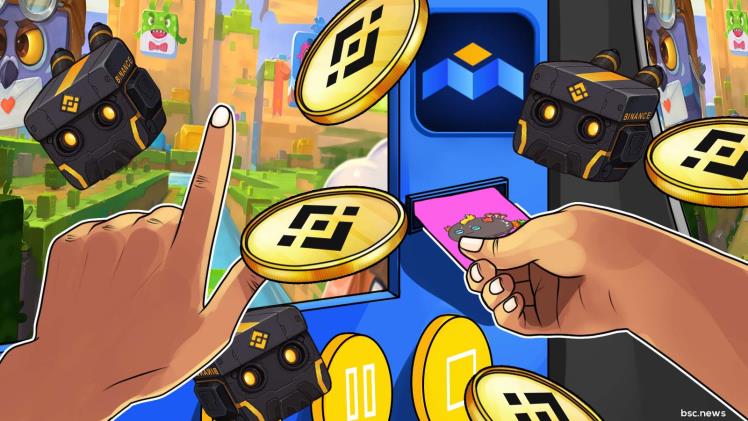In recent years, a revolutionary trend has emerged in the gaming industry, bringing together the worlds of gaming and blockchain technology. Play-to-earn games, also known as blockchain-based games or crypto games, have gained significant attention and popularity among gamers and crypto enthusiasts alike. Participating in these games gives an opportunity for gamers to earn real-world value.
Understanding Play-to-Earn Games
Play-to-earn games utilize blockchain technology to create in-game economies where players can earn cryptocurrency or digital assets while playing. Unlike traditional video games, where the time and effort invested by players often result in intangible rewards, P2E games introduce a new paradigm. By leveraging blockchain, players can own and trade digital assets, turning their in-game achievements into real-world value.
Blockchain technology ensures the transparency, security, and immutability of these digital assets. The ownership and scarcity of items within play-to-earn games are recorded on the blockchain, preventing fraud and counterfeiting. Additionally, players have complete control over their assets, allowing them to freely buy, sell, or trade them with other players.
Mechanics of Play-to-Earn Games
Play-to-earn games employ various mechanisms to enable players to earn rewards. Let’s explore some common mechanics:
Non-Fungible Tokens (NFTs): NFTs are unique digital assets that represent ownership of a particular item or character in a game. Players can earn NFTs as rewards for completing quests, winning battles, or achieving specific milestones. These NFTs can be traded on specialized marketplaces for other digital assets or cryptocurrencies.
Staking: Some play-to-earn games allow players to earn rewards by staking their in-game assets or cryptocurrencies. By locking up their assets in smart contracts, players contribute to the security and stability of the game’s ecosystem, earning a portion of the game’s revenue or additional tokens.
Playtime and Skill-based Rewards: Play-to-earn games often reward players based on their playtime or skill level. The longer a playtime or, the better they perform, the more rewards they can earn. This mechanic encourages players to invest time and effort into the game, as their progress directly translates into tangible rewards.
Governance and Voting: Some play-to-earn games offer players the opportunity to participate in the game’s decision-making process. By owning specific in-game assets or tokens, players can vote on game updates, new features, or balance changes, giving them a voice in shaping the game’s future.
Potential Impact on the Gaming Industry
P2E games is a welcome addition in the gaming industry in several ways:
Economic Empowerment: Play-to-earn games provide players with the ability to monetize their gaming skills and dedication. This empowers players to earn a living or supplement their income by doing what they love—playing crypto new games. It offers a new avenue for financial inclusion, especially in regions where traditional job opportunities may be limited.
Player Ownership: Players own their in-game assets through blockchain technology. This ownership extends beyond the game itself and can be transferred or sold on external platforms. This concept challenges the prevailing model where players spend money on in-game purchases with no ownership rights.
Community Building: Play-to-earn games foster strong communities of players who share common interests and goals. The ability to trade assets and collaborate on in-game activities cultivates a sense of camaraderie and cooperation. Players become stakeholders in the game’s success, driving innovation, supporting each other, and collectively shaping the game’s future.
Increased Engagement and Retention: Play-to-earn mechanics provide a strong incentive for players to remain engaged with the game for longer periods. The prospect of earning real-world value encourages players to invest more time, effort, and resources into their gaming experiences. This increased engagement can lead to higher player retention rates and a thriving player base.
New Business Models: Play-to-earn games open up new business models for game developers. Instead of relying solely on upfront game sales or in-game purchases, developers can generate revenue through various channels. This includes transaction fees from in-game asset exchanges, marketplace commissions, and revenue-sharing with players who stake their assets in the game’s ecosystem.
Play-to-earn games offer a range of benefits to players and developers alike. These blockchain-based gaming experiences provide economic empowerment, player ownership, community building, increased engagement, and retention rates, as well as new business models for game development. As technology continues to advance and more developers embrace play-to-earn mechanics in their games, we can expect this trend to become increasingly prevalent in the future. With its potential for disruption within the gaming industry, it is an exciting space that will be worth watching closely over the coming years.

